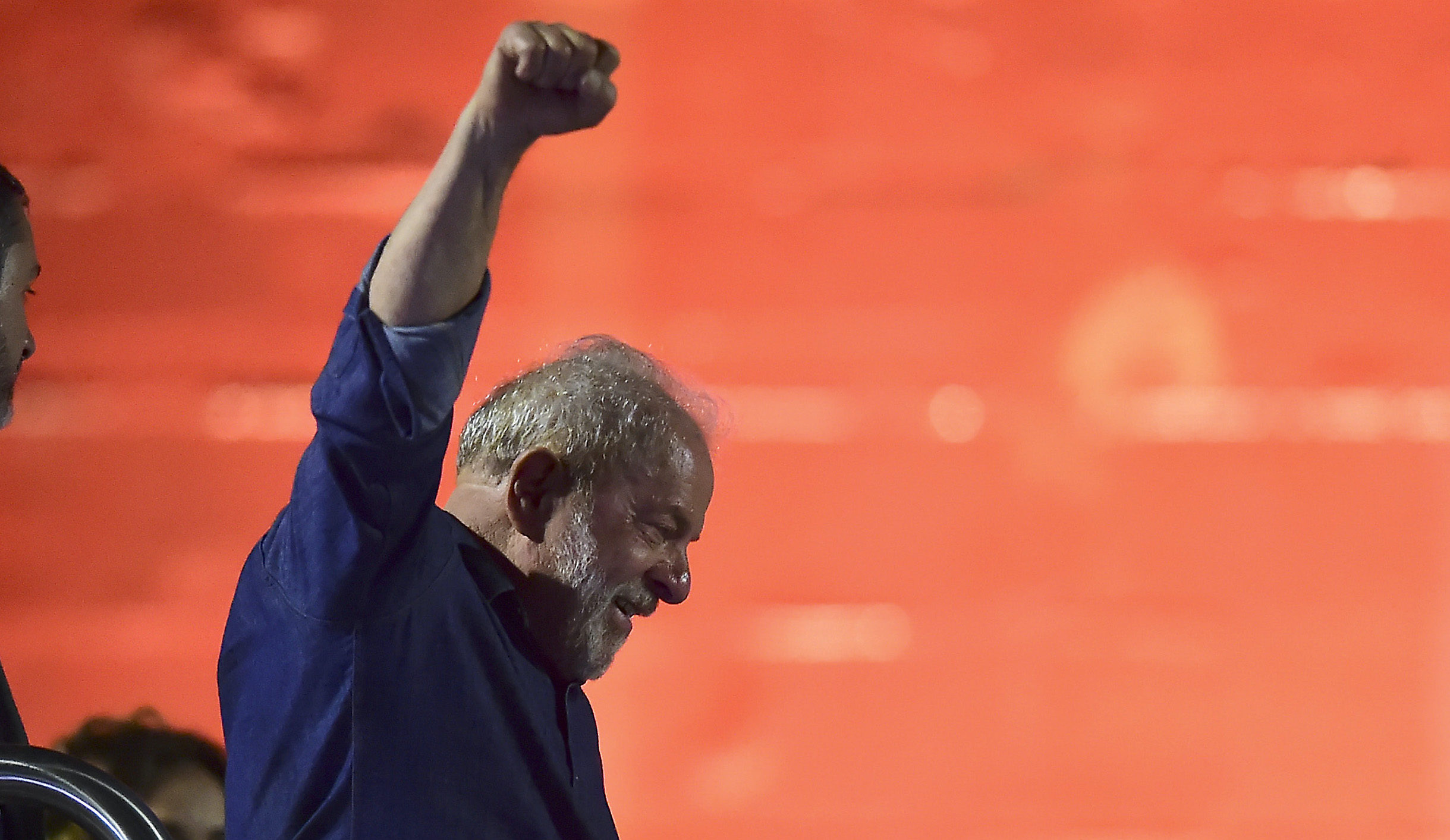São Paulo
It should have been an easy victory but former metalworker and two-term former president Lula won by only a whisker. President Bolsonaro, by means fair and foul, threw the whole weight of the Brazilian state at the election — and still couldn’t win. This was Brazil’s most crucial election since re-democratisation in the 1980s, but the important thing is that, today, the usually trite conclusion is actually profound: democracy was the winner.
“I feel like I have been resurrected in Brazilian politics,” exclaimed Lula in his victory speech, “they tried to bury me alive — and yet, here I am.” In a second-round campaign characterised by religious themes, this was a knowing statement — Lula was even forced to sign an open letter to evangelicals, a key plank of Bolsonaro’s support, effectively claiming that, no, he was not in league with the devil. It was also a reference to his imprisonment for 580 days on corruption charges, since quashed, which reinforced the idea that this was no ordinary election. Lula was not up against a mere adversary, “but the machine of the Brazilian state placed at the service of the incumbent.”
There is some truth to this claim. This year, Bolsonaro declared open season on the state coffers. Hundreds of billions of reais were illegally disbursed via a “secret budget” to allies; energy subsidies tried to counteract rising fuel inflation; and cash transfers were temporarily bumped up — all this and more in an effort to salvage Bolsonaro’s re-election bid that looked a long shot a few months ago.
And then, on election day, federal highway police carried out arbitrary stops on buses carrying voters in PT-supporting areas, especially in the North-East. Reports claim this flagrant vote-suppression measure was coordinated from the presidential palace itself.
Despite this, it is worth asking: if Bolsonaro is as terrible as is often claimed, why did Lula win with a mere 50.9% — only 2.1 million votes more than his rival? Inflation had been biting hard since before the Russian invasion of Ukraine, making meat in particular unaffordable. Over 600,000 Brazilians died during the Covid pandemic and reports circulated that Bolsonaro had declined offers to buy vaccines — or only sought to make purchases in return for kickbacks. The economy is in terrible shape and millions are going hungry. So why couldn’t Lula achieve a larger margin of victory?
Perhaps he was caught between two stools: one playing to establishment interests and the other rallying his working-class and poor base. Indeed, Bolsonaro did not have the support of Brazil’s elites during this election. Swathes of Brazil’s ruling class, from finance capital and industrialists, to the legal and cultural establishment, to centre-Right politicians, all swung behind Lula. The verdict: Bolsonaro is bad for business.
For this reason, Lula’s government will “not be a PT government,” according to his party president. Instead, it will reflect the broad front that elected him, including former centre-Right opponents. Bolsonaro-aligned deputies hold a plurality in the lower house of Congress and Bolsonaro allies control the governorship of the three largest states in the union.
Another reason for Bolsonaro’s surprising levels of support may be that the gusts of anti-politics still blow strong: politicians promising things require trust; when little is on hand, explicitly destructive politicians like Bolsonaro fare better. After all, a few months after inauguration in 2019 Bolsonaro proudly declared that his government had the mission to “deconstruct” and “undo a lot of things.” In this at least Bolsonaro succeeded.
Thankfully, Brazilian democracy has remained intact. With key allies conceding defeat and Bolsonaro hiding away for hours after the result was declared, the fears of a post-election coup attempt are receding. Brazil’s imperfect democracy stumbles on, unresponsive and exclusionary, but still much better ground on which to fight than the “real democracy” of which Bolsonaro dreams.











Join the discussion
Join like minded readers that support our journalism by becoming a paid subscriber
To join the discussion in the comments, become a paid subscriber.
Join like minded readers that support our journalism, read unlimited articles and enjoy other subscriber-only benefits.
Subscribe